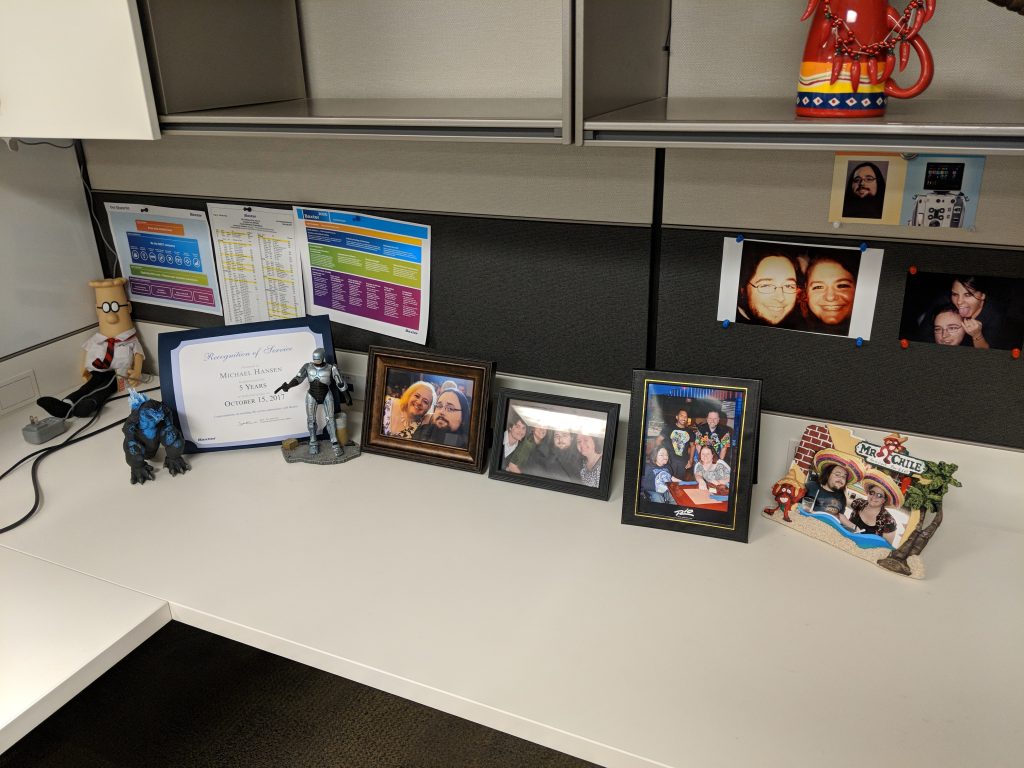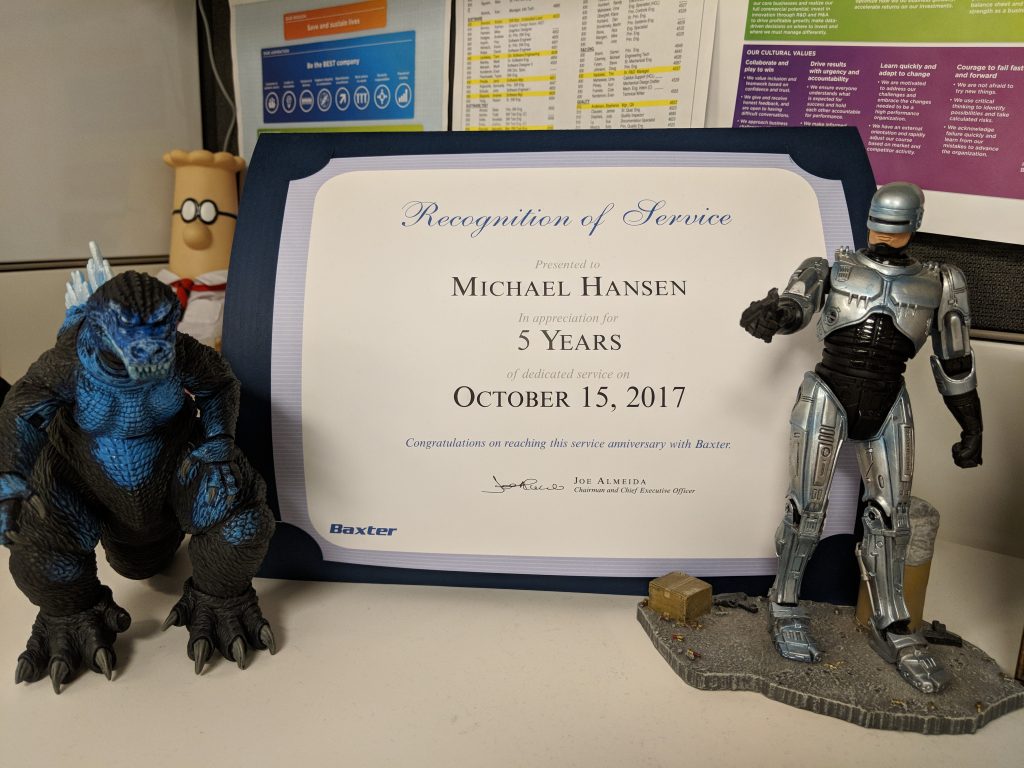Sometimes I miss my cubicle…sometimes.

But when I don’t miss it, it’s usually because it’s below freezing outside, I’m physically feeling like garbage or the workday is riddled with meetings. Occasionally you hear “That meeting could have been an email”, says the guy that probably wouldn’t pay attention to either. Granted sometimes they’re right, not all meetings knock it out of the park, but sometimes you just want to be there. Obviously being physically disabled adds another element, it’s an issue of being where you want, when you want. Unfortunately it’s not always my choice to work from home.
So maybe I do miss my cubicle, but not for the typical reasons that a majority of workers would. As weird as this is to say, I do miss it, but I miss it for what it represents. A cubicle to me represents an achievement, and that achievement is a job. For all the people that want to work but can’t, that’s what reminds me what an achievement having a job is. This might be a dated article, but regardless of the economy, disabled people do want to contribute. It’s unfortunate that those who want to contribute aren’t able to…and physical or mental limitations aren’t always the issue, the social stigma is just as difficult to overcome.

At the end of 2019 the covid pandemic began. One of the big questions I had, and still have, is how it would affect disabled workers looking to join the workforce? With all the adjustments that go with working from home: digitizing paperwork, streaming meetings online, and allowing flextime to accommodate one’s schedule, it seemed like this would be the best opportunity for those with disabilities trying to join the workforce. I haven’t seen any updated figures (or anyone else in a wheelchair in my office) so I’m not sure if there was a positive effect, but honestly, there was. If non-manual-labor jobs can be done with just a mouse and keyboard (pending the right qualifications of course) the pandemic should have played a huge role in disabled people becoming new hires. This should have opened the floodgates for those with physical disabilities looking to break into the workforce. If the number of new hires without a disability remains the same however, it only reinforces the fact that this disabled people in the workplace is about acceptance, not qualifications.
At the end of the day though, this is still America.
-mh
